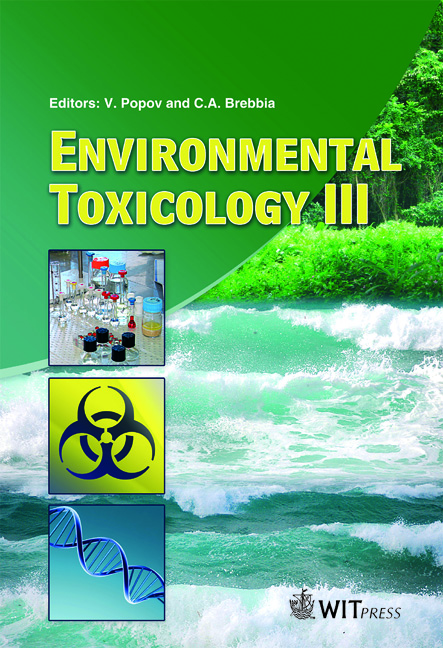New Isolation Method Of Desiccation-tolerant Microorganisms For The Bioremediation Of Arid And Semiarid Soils
Price
Free (open access)
Transaction
Volume
132
Pages
10
Page Range
121 - 130
Published
2010
Size
325 kb
Paper DOI
10.2495/ETOX100121
Copyright
WIT Press
Author(s)
M. Manzanera, J. J. Narváez-Reinaldo, L. SantaCruz-Calvo, J. I. Vílchez, J. González-López & C. Calvo
Abstract
In arid and semiarid regions, the establishment of microorganisms and plants for the bioremediation of polycyclic aromatic hydrocarbons (PAHs) is further impeded by a number of physicochemical factors including low precipitation, high evaporation, high winds and extreme temperatures. These factors contribute to the extremely low water content in soil and reduce the survival of most of the microbial isolates with a role in the bioremediation of soils. We have developed a new technology based on the ability of anhydrobiotic microorganisms to withstand desiccation and the remarkable stability they display in a dried state. Because of their ability to survive without water and to promote plant growth under water stressing conditions, we have used this tolerance for the isolation of a collection of new desiccation-tolerant microorganisms that could be useful for the treatment of PAH-polluted soils in arid and semiarid regions. Keywords: anhydrobiosis, polycyclic aromatic hydrocarbons, arid and semiarid soils, bioremediation, PGPR. 1 Introduction Rhizoremediation combines the use of plants and microorganisms for the removal of pollutants. In this process, the microbes present in the rhizosphere of plants used during the bioremediation process provide an important contribution to the degradation of such pollutants [1, 2]. This technique has been extensively used for the treatment of soils polluted with polycyclic aromatic hydrocarbons
Keywords
anhydrobiosis, polycyclic aromatic hydrocarbons, arid and semiarid soils, bioremediation, PGPR





